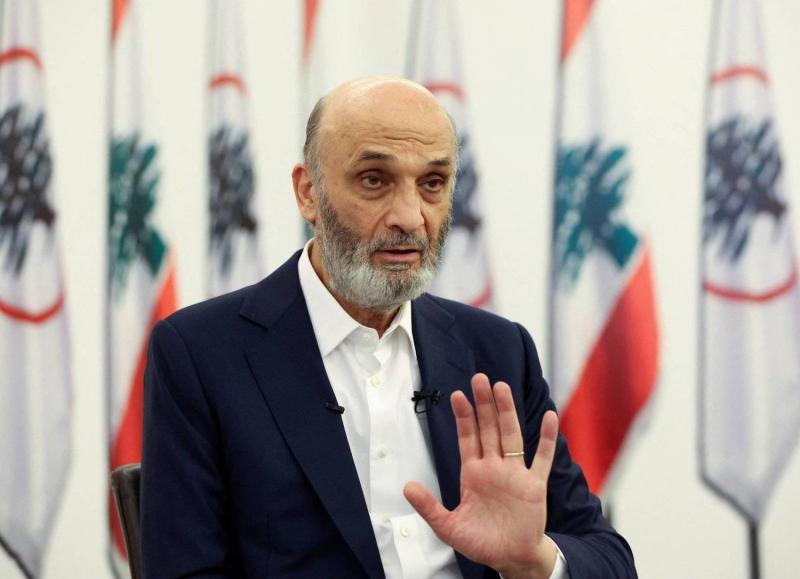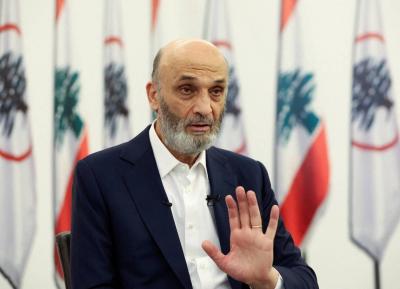The President of the Lebanese Forces party, Samir Geagea, pointed out that discussing the Christian issue is inaccurate, and they do not wish to change or overlook the reality that all sects are suffering from a significant national "state" issue. He mentioned that the resistance group loves Christians to the extent that they burden them with all their proposals, for instance attributing the paralysis of presidential elections to the Maronite-Maronite understanding.
In a televised interview, he stated that over the last forty years a segment of Christians has been lost, contributing to the current situation, but circumstances began to improve after the 2022 elections. Foreign, Arab, and local studies noted that the current conflict in Lebanon is between Christians on one side and the Shiite duo on the other, along with various issues shared by all. There is no political vacuum at the Maronite level; for the first time in a long time, Christians are the "other party" in the country.
Geagea emphasized that he is not convinced of the outcome of the Bkerké meeting, nor does he foresee its benefit. However, “the Lebanese Forces” participates for various reasons, primarily “for the church.” He mentioned that a Christian faction has been partially or wholly involved in power for over 15 years, referring to the Free Patriotic Movement, and stated that nothing has emerged from it. He asserted that the solution lies in gathering other Christian forces that are already in agreement on a unified opinion, while the “Movement” has a different stance. He indicated that they have an alternative solution by gathering other close Christian forces such as the Kataeb party, the Progressive Nationalists, and independents, which agree on a united opinion while the “Movement” sings in another choir.
He noted that they participate in the Bkerké meeting because no one has the right to judge performance based on history, stating, “Perhaps at some point…” However, they learned from past experiences not to give the Movement “any paper” before it commits to declared positions. Therefore, they laid out clear points at Bkerké and provided it with the opportunity to think. He expressed his near certainty that if “the party” agrees with Gebran Bassil on a presidential candidate other than the head of the Marada Movement, Sleiman Frangieh, he will sit with him. Thus, it is likely that the Bkerké meetings are, unfortunately, a "potato dish," and the most important thing is that they know it well and understand how to deal with it.
Geagea continued, stating that “the movement” has no historical pathway, and he is not disparaging Bassil. He remarked that the Movement managed to destroy the only free zone in Lebanon in the early 1990s and caused nearly 1,000 deaths under the slogan of “uniting the weapons” while an armed organization, which sought to maintain the army and the state, was present: the Lebanese Forces. He argued that in 2005, when the state became established after the Taif Agreement, the Movement allowed the existence of weapons with the party outside state authority under the pretext of state unpreparedness. Thus, there are no steadfast principles for “the Movement,” only interests that drive it to cooperate with whoever secures them.
In 2016, this “Movement” monopolized power and Christian portfolios, resulting in a major disaster during the worst phase, where nothing was achieved except for the election law, for which the Lebanese Forces were the main drivers, alongside the Movement's aspirations. He expressed disbelief that the constitutional mechanism wasn’t adopted in executing the presidential entitlement, while it is upheld in the elections of the parliamentary presidency and naming the prime minister.
He reiterated the necessity for Speaker Nabih Berri to call for sessions continuously until a new president is elected, stating that adherence to the constitutional mechanism remains fundamental. Geagea considered Berri's proposal for a dialogue table a distraction that they won’t accept, claiming its aim is to “confuse the situation” and shift the responsibility for the disruption to others, in addition to relying on the possibility of successfully “pulling some deputies to his side.”
He reminded that the southern war cost around 350 Lebanese lives and a billion dollars in direct losses, with another billion in indirect losses, questioning who bears the responsibility. He maintained that the state compensates when it decides to enter into war, not when “anyone decides” on its behalf. A considerable number contributed since 2006 until yesterday in this direction, and where was “the Movement” at that time? It was playing both sides of the coin, not from a principled stance on the southern war, but rather waiting for gains from “the party.”
Regarding the intention of the "quintet’s ambassadors," he considered it “serious” but stated they do not have the capacity to make a breakthrough. They come from esteemed countries and fully understand the mechanism of democratic elections, emphasizing that its success requires holding sessions continuously, not through dialogue tables. He confirmed their willingness to discuss a third candidate's name if it is the solution, provided he embodies the qualities of Azour. He stressed that they are not fixated on individuals, and their goal is to reach a resolution, not to obstruct matters.




